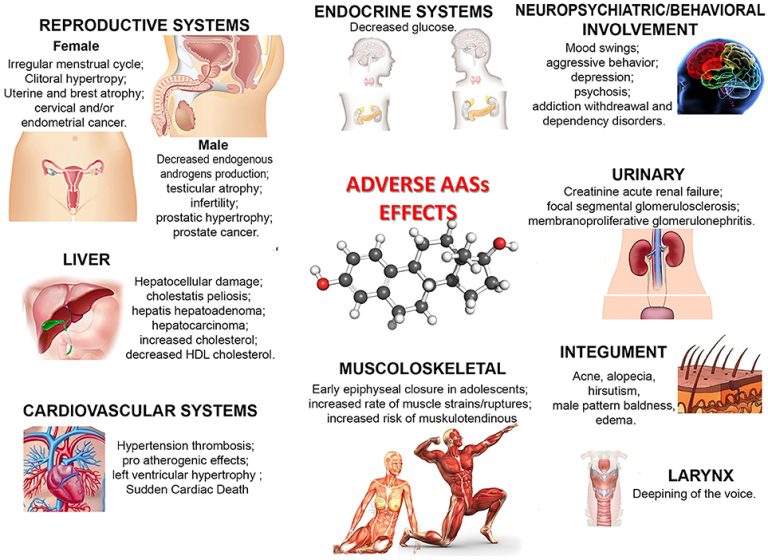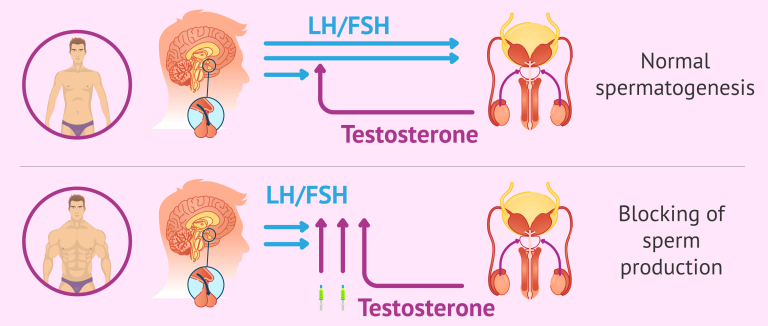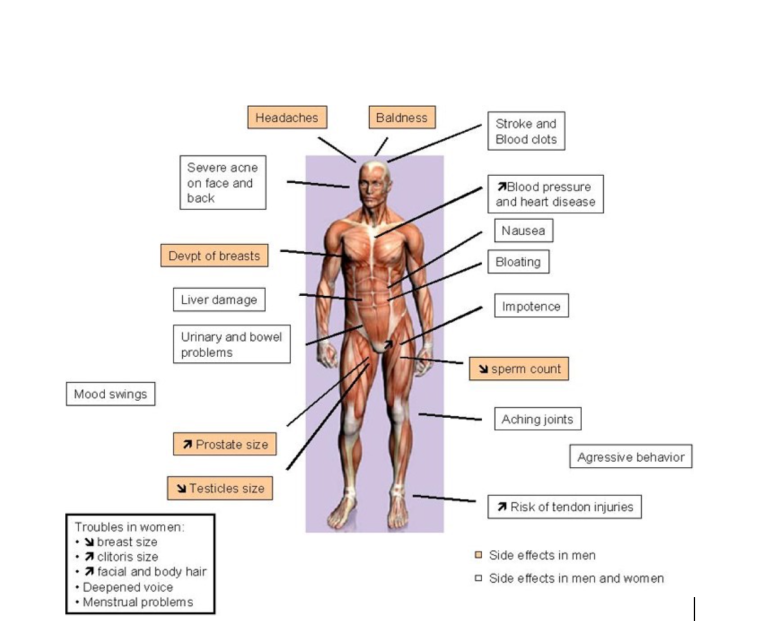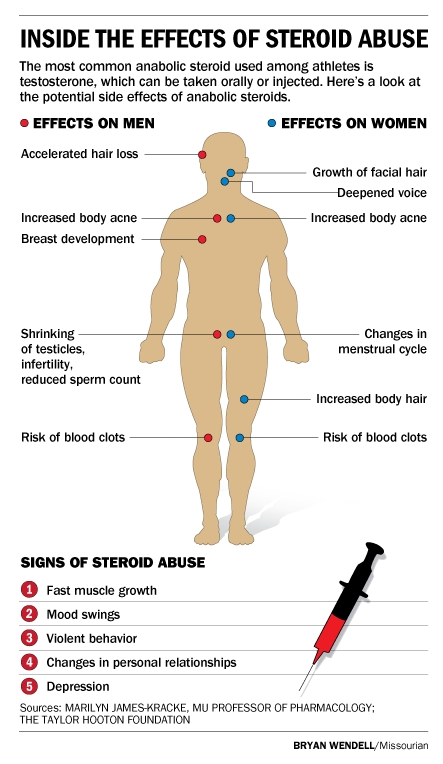Inside The Mind: Investigating The Mental Side Effects Of Steroid Abuse
Steroid abuse has become a growing concern in the world of athletics, bodybuilding, and even among recreational users. While the…
Steroid abuse has become a growing concern in the world of athletics, bodybuilding, and even among recreational users. While the physical side effects of steroid use are well-known, less is understood about the potential mental health consequences. This article delves into the mind of steroid users, examining the impact of steroid use on mood, behavior, and mental health.
From depression and anxiety to aggression and psychosis, the mental side effects of steroid abuse can be serious and long-lasting. By exploring the complex interplay between steroids and the brain, this article sheds light on the mental health risks associated with steroid use and highlights the need for increased awareness and intervention. Read on to learn more about the hidden dangers of steroid abuse.

Inside the Mind: Investigating the Mental Side Effects of Steroid Abuse
Steroids are a class of drugs that are used to enhance physical performance and build muscle mass. While the physical side effects of steroid abuse are well-known, the mental side effects are often overlooked. In this article, we will investigate the mental side effects of steroid abuse.
The Science behind Steroids
Steroids are synthetic hormones that are designed to mimic the effects of testosterone. Testosterone is the primary male sex hormone and is responsible for the development of male physical characteristics such as muscle mass, bone density, and body hair. When steroids are introduced into the body, they increase the level of testosterone in the bloodstream, which leads to an increase in muscle mass and strength.
Benefits of Steroids
While steroids are often abused by athletes and bodybuilders, they do have legitimate medical uses. Steroids can be used to treat conditions such as delayed puberty, muscle wasting, and osteoporosis. They can also be used to treat certain types of cancer and autoimmune diseases.
VS
However, the benefits of steroids must be weighed against the potential risks. Steroid abuse can lead to a range of physical and mental health problems.
The Physical Side Effects of Steroid Abuse
The physical side effects of steroid abuse are well-documented. These include:
- Acne
- Hair loss
- Gynecomastia (breast development in men)
- Testicular atrophy (shrinkage of the testicles)
- Infertility
Table: Physical Side Effects
| Side Effect | Description |
|---|---|
| Acne | Increased oil production in the skin leading to breakouts. |
| Hair loss | Male pattern baldness can develop in both men and women. |
| Gynecomastia | Enlargement of breast tissue in men. |
| Testicular atrophy | Shrinkage of the testicles due to decreased natural testosterone production. |
| Infertility | Decreased sperm production and motility. |
The Mental Side Effects of Steroid Abuse
While the physical side effects of steroid abuse are well-known, the mental side effects are often overlooked. These can include:
- Mood swings
- Depression
- Anxiety
- Aggression
- Mania
- Psychosis
- Delusions
- Paranoia
The Effects of Steroids on Brain Chemistry and Behavior
Steroids can have a profound effect on brain chemistry and behavior. Research has shown that steroids can alter the levels of neurotransmitters such as dopamine, serotonin, and norepinephrine, which are responsible for regulating mood and behavior. These changes can lead to mood swings, depression, anxiety, and aggression.
Table: Mental Side Effects
| Side Effect | Description |
|---|---|
| Mood swings | Rapid changes in mood from euphoria to depression. |
| Depression | Feelings of sadness, hopelessness, and worthlessness. |
| Anxiety | Excessive worry and fear that can interfere with daily activities. |
| Aggression | Increased irritability and anger. |
| Mania | A state of elevated or irritable mood, energy, and activity levels. |
| Psychosis | A state of losing touch with reality, characterized by delusions and hallucinations. |
| Delusions | False beliefs that are not based in reality. |
| Paranoia | Excessive suspicion and mistrust of others. |
Conclusion
Steroid abuse can lead to a range of physical and mental health problems. While the physical side effects of steroid abuse are well-known, the mental side effects are often overlooked. It is important to weigh the benefits of steroids against the potential risks, and to recognize the signs of steroid abuse in yourself or others. If you or someone you know is struggling with steroid abuse, seek professional help immediately.
Frequently Asked Questions
What are the common mental side effects of steroid abuse?
Steroid abuse can lead to various mental side effects, including aggression, mood swings, and depression. These effects can be due to the direct impact of steroids on the brain or due to the psychological effects of steroid use. Some people may also experience anxiety, paranoia, and delusions. The severity of the mental side effects may depend on the type and dosage of the steroids used, as well as the individual’s susceptibility.
It is important to note that not everyone who uses steroids will experience these mental side effects, and the effects may be temporary or long-lasting. However, if you or someone you know is experiencing these symptoms, it is important to seek professional help and support.
Can steroid abuse lead to addiction?
Yes, steroid abuse can lead to addiction. Like other drugs, steroids can activate the brain’s reward system and lead to feelings of pleasure and euphoria. Over time, a person may develop a psychological and physical dependence on steroids, which can make it difficult to stop using them. Withdrawal symptoms, such as depression, fatigue, and insomnia, can also occur when a person stops using steroids.
Treatment for steroid addiction may include therapy, support groups, and medication-assisted treatment. It is important to seek professional help if you or someone you know is struggling with steroid addiction.
How can steroid abuse affect relationships?
Steroid abuse can have a negative impact on relationships. The mood swings, aggression, and other mental side effects of steroid use can lead to conflicts and strained relationships with family, friends, and romantic partners. Steroid use may also lead to social isolation, as a person may prioritize their drug use over social activities and responsibilities.
In addition to these effects, steroid use can also have physical effects that can impact relationships, such as infertility, sexual dysfunction, and physical changes in appearance. It is important to seek support and treatment for steroid abuse to prevent these negative impacts on relationships.
Can steroid abuse lead to long-term health problems?
Yes, steroid abuse can lead to long-term health problems. Steroids can impact various systems in the body, including the cardiovascular, musculoskeletal, and endocrine systems. Long-term use of steroids can increase the risk of heart disease, liver disease, and kidney damage. Steroid use can also lead to musculoskeletal problems, such as muscle weakness and joint pain.
In addition to these physical health effects, steroid use can also lead to mental health problems, such as depression, anxiety, and psychosis. It is important to seek professional help and support if you or someone you know is struggling with the long-term effects of steroid abuse.
How can steroid abuse be prevented?
Preventing steroid abuse involves education and awareness. It is important to understand the risks and consequences of steroid use, as well as the potential mental and physical side effects. Educating young people about the dangers of steroid use can help prevent them from experimenting with these drugs.
In addition to education, providing alternatives to steroid use can also be helpful. Encouraging healthy habits, such as exercise, nutrition, and stress management, can help individuals achieve their fitness goals without resorting to steroids. Finally, promoting a supportive and non-judgmental environment can help individuals feel comfortable seeking help and support if they are struggling with steroid abuse.
The Side Effects of Steroids | Trafficked with Mariana van Zeller
In conclusion, steroid abuse is a serious issue that can have devastating mental side effects. While the physical benefits may seem tempting, it is important to consider the potential long-term consequences on mental health.
By investigating the effects of steroid use on the brain, we can better understand the risks and develop strategies to prevent or minimize harm. It is crucial for individuals and healthcare providers to be aware of the potential mental health consequences of steroid abuse, and to seek help if necessary.
Ultimately, the decision to use steroids should not be taken lightly. Instead, individuals should prioritize their mental and physical health by seeking safe and healthy ways to achieve their fitness goals. Let’s work together to promote a culture of health and wellness, free from the harmful effects of steroid abuse.






